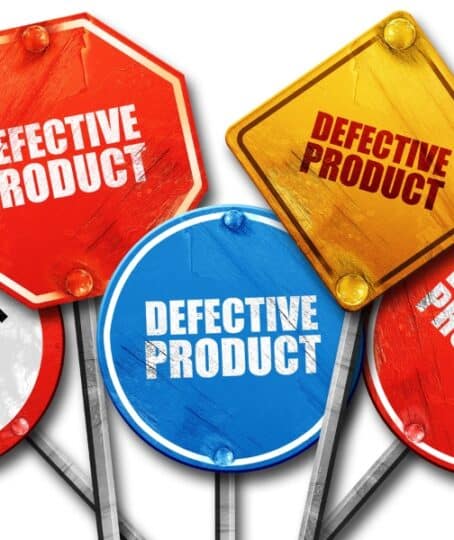
When a Dog Attacks Again and Again If dogs attack once, it’s alarming. When they attack five times, it’s no...


If you are using a medical device that is defective, you may be able to hold the medical device distributors liable for injuries that you suffer as a result. You can hold a medical device distributor liable in Illinois if you can prove negligence or breach of warranty, or by using the principles of strict liability.
The advances in technology and devices used in medicine have allowed people to address and manage serious medical conditions. Whether it be pacemakers or joint replacements, these devices can help you to regain your quality of life after illness, injury, or old age causes loss of function. Unfortunately, certain medical devices may impede your recovery instead of assisting it, due to either design flaws or manufacturing defects. If you have suffered injuries because of defective medical devices, you may be able to hold the device manufacturer liable for the damages caused by your injuries.

A medical device is any instrument, apparatus, machine, implant, device, machine, or monitor that a medical practitioner uses to address an injury, illness, or disease. Below are examples of medical devices that can cause injury.
These are small electronic devices that are implanted in a patient's chest. They deliver electric shocks to help maintain a normal heart rhythm. Pacemakers can improperly deliver these electrical shocks, or fail, causing heart conditions that can be life-threatening.
Patients with diabetes rely on these devices to regulate their insulin levels and keep their bodies healthy. Malfunctioning devices can lead to severe and potentially life-threatening conditions like hypoglycemia or ketoacidosis.
People who suffer from joint injuries may need to undergo a full joint replacement procedure. Certain products, like metal-on-metal hip or knee replacements, have been known to deteriorate over time, causing metal debris to enter the body and resulting in severe infections and exposure to hazardous substances.
Blood clot filters are devices inserted into the bloodstream. They prevent clots from reaching the heart, brain, or lungs. These devices have been known to break down, which can lead to punctured blood vessels or organs, resulting in internal bleeding or infections.
If an implant is leaking or ruptured, it may lead to discomfort and inflammation, and also result in disfigurement, requiring further surgical procedures.
Proper manufacturing of surgical tools is crucial to avoid infections or complications during surgical procedures. Malfunctioning devices like endoscopes or robotic surgery systems can result in injuries due to surgical errors.
It's important to understand the meaning of a defect when dealing with a product liability lawsuit. Essentially, a defect is an imperfection that impairs the quality or function of a product. To file a claim, your Bloomington personal injury lawyer will help to establish whether the defect falls under one of three categories:
If a product has a design defect, it means that there is a flaw in its design that could make it unsafe, even if it was correctly manufactured.
There may be times when a medical device is on the market for a long time before it causes any injuries. This can be because the device takes time to break down in some way. A plaintiff may claim that the manufacturer deliberately concealed the danger, even though it knew of it, or delayed removing the product from the market.
A manufacturing defect occurs when something goes wrong while the product is made. During production, the manufacturing of the product departs from the intended design, making it dangerous during use for its intended purpose. A manufacturing defect does not appear in the entire production line, only in some products.
These defects can occur when medical devices are damaged before reaching a patient, not only during manufacturing, but can be during shipping, or damage at the hospital or medical practitioner’s office. They can happen at any point between manufacturing at the factory and the time that you receive the medical device.
Defects in marketing refer to insufficient guidance or warnings on the appropriate use of a product. Even if the product was manufactured correctly, the absence of proper instructions or cautions can render it dangerous and constitute a defect under the law. This type of claim includes situations in which the medical device did not contain accurate warnings about its potential danger, or there were no adequate instructions provided concerning the safe and appropriate use of the medical device.
These marketing defects, or insufficient advice regarding their use, may be provided by a doctor, hospital, sales representative, or any other type of healthcare provider.
There are no federal laws regarding product liability. Instead, Illinois has three theories of product liability. Claims can be made based on strict liability, negligence, or breach of warranty.
The legal concept of negligence requires a person to conduct himself or herself in a way that does not cause harm to others. If someone's actions result in harm to another person, the law requires that person to compensate the injured party.
To establish negligence, the plaintiff must prove five key components:
In cases of product liability, the designer, manufacturer, distributor, and seller all owe a duty of care to the consumer who uses their product. When medical devices are used, a hospital, doctor, or healthcare provider who provides or recommends the healthcare device similarly owes a patient a duty of care. Any of these parties can be held liable if a defect is found, but it can be difficult to prove negligence on the part of the manufacturer or designer. To address this, the law has established the principle of strict liability, which allows for a product liability claim to be brought even without proof of negligence.
Product liability claims based on strict liability differ from other personal injury claims. Typically, personal injury claims require proof that the defendant acted negligently or intentionally to cause harm or injury.
When it comes to product liability, defects can arise at any point in the supply chain – from the design and manufacturing to handling and shipment. Proving negligence at any of these stages can be costly and challenging. To address this, the legal principle of strict liability was established for product liability claims.
Using the principles of strict liability, you do not need to prove negligence. You will be able to hold the medical device distributor liable if you can prove the following elements:
A warranty is a seller's guarantee of quality. If the product fails to meet the standards promised in the warranty, a breach of warranty claim arises. The seller can be held accountable, and the purchaser may be entitled to repair, replacement, or compensation for harm or injury.
Warranties can be express or implied. Express warranties guarantee quality or reliability, while implied warranties are automatically presumed. Almost all consumer products have an implied warranty, ensuring proper function for their given purpose and defect-free condition. When a product is purchased, there is an implied warranty, which is the realistic expectation from the purchaser regarding the product.
Proving fault in a product liability case requires you to show that the product was defective, causing your injuries. It will help to know how to find the right product liability attorney in Bloomington, to establish liability.
To establish liability, your attorney will help to gather evidence, which may involve expert witnesses. These witnesses can give evidence regarding the design and manufacture of the product, the defect, and the medical impact of the defect. Your evidence should establish that the medical device was dangerous; that the distributor did, or should have known, of the danger; and failed to take reasonable steps to prevent harm to others from the danger.
Your attorney can also advise on how much to ask for in a personal injury settlement. A Bloomington product liability lawyer will help you pursue appropriate compensation for your injuries from medical device distributors.

When a Dog Attacks Again and Again If dogs attack once, it’s alarming. When they attack five times, it’s no...

Overview of the Personal Injury Claim Process in Illinois No one expects to suffer an injury or get involved in...

Exploring Caps on Damages in Illinois Personal Injury Cases Illinois does not have laws capping damages in successful personal injury...